On Tuesday, March 19, 2019, experts and professionals on climate change from across the globe gathered at Alex Ekwueme, Federal University, Ndufu-Alike, Ebonyi State, to brainstorm on implications of the Katowice Climate Package for Nigeria. The event which took place at Needs Assessment Lecture Theatre of the University was organised by Centre for Climate and Development, AE-FUNAI, in collaboration with the Department of Climate Change of the Federal Ministry of Environment and the United Nations Development Programme (UNDP).

Declaring the workshop open, Vice-Chancellor of the university, Prof. Chinedum Nwajiuba, said that university exists to generate knowledge especially in active teaching and research and rendering service to communities. He noted that the university should not be different with the demands and change of time.
“We are supposed to be the brain of our society. In AE-FUNAI, we do not only talk, we work the talk,” he enthused.
Prof. Nwajiuba posited that AE-FUNAI planted about 4,981 ornamental and fruit trees between 2016 and 2018. The essence was to provide more generic platform for people to be carried along, thus AE-FUNAI has embarked on hybrid power plant courtesy of the Federal Government of Nigeria under its Energised Education Programme.
On completion, the programme will supply part of the required energy for powering and lighting machine and other equipment thereby building institution that will be part of the new Centre for Climate Change and finding solutions to climate related issues. According to him, the creation of the Centre for Climate Change in the university under the leadership of Dr. Robert Onyeneke is an indication of the university’s interest and involvement in the climate change challenge which has become a global concern.
He further emphasised that the roundtable was basically to sensitise participants and the entire Nigerian community on climate change, and possibly proffer solutions to its challenges and the effects of global warming in Nigeria and the world at large. The workshop is also intended to drive Nigerians and the Federal Government to keying into the Paris Climate agreement of 2015.
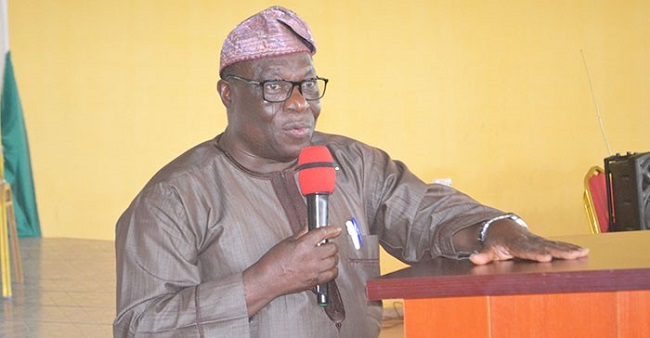
The key facilitator at the workshop, Emmanuel Oladipo, a Professor of Climatology at the University of Lagos, led the discussion on the way forward for Nigeria after the Katowice Climate Package. While making his presentation on the topic: “Implementation Process of The NDC and Practical Actions and Activities Needed to Enhance Its Implementation”, he laid emphasis on the fact that Nigeria’s first Nationally Determined Contribution (NDC) outlines the country’s change priorities for post-2020 period including targets and strategies for addressing the causes of climate change and responding to its effects.
He identified five sectors that are critical for Nigeria to be able to contribute to the goal of keeping the global temperature increase to well below 20C. The five sectors, according to him, are: Agriculture and Land Use, Energy, Industry, Oil and Gas, and Transport.
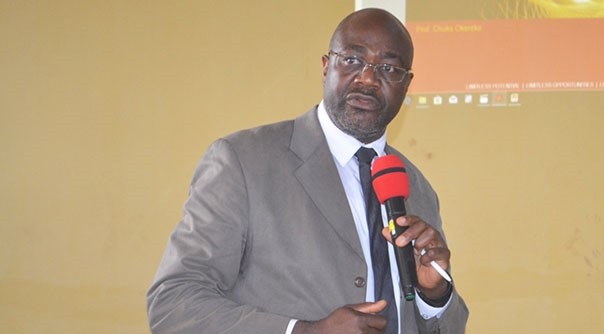
In his presentation, Prof Chukwumerije Okereke of the University of Reading in the UK explained that there is difference between weather change and climate change. He posited that weather could be hot or cold and can stretch for a day or two but climate change lasts for a very long period. He stated that the energy that comes from the sun is one of the reasons why we are alive but emission of gas, deforestation and burning of refuse have adverse effect on the ozone-layer. He pointed out that, “there is no end to climate change; we just need to understand it and know what to do at every level”.
Prof. Okereke, who is joining AE-FUNAI, emphasised the need for a holistic understanding and approach to climate change in Nigeria and the world over during his keynote presentation on the rationale for the establishment of the Institute for Climate Change and Sustainable Development (ICCSD) in AE-FUNAI.
The presentations by the numerous scholars in attendance highlighted the actions and inactions that constitute threat to the environment especially gas flaring and emissions, indiscriminate felling of trees, use of generators, fossil gas, bush burning, and deforestation, among others, as these activities heat up the environment. They posited that, to maintain the National Green Bond, all hands must be on deck as collective effort will underscore the relevance of fighting climate change globally.
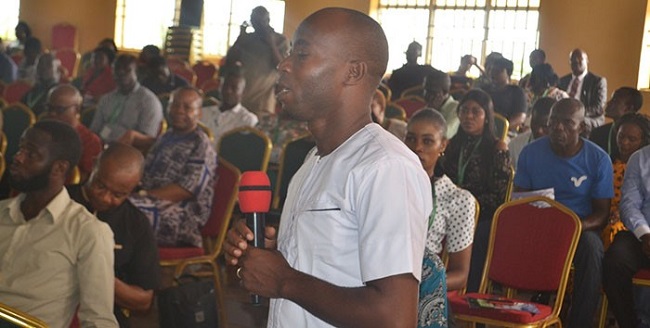
Another facilitators at the workshop, Dr. Robert Onyeneke, who made a presentation on the “Context and Justification for the Roundtable”, emphasised: “Collaborative efforts at all levels (international, regional, national, sub-national) and working in partnership with stakeholders, (communities, households, individuals, private sectors, civil society and the academia) are needed to address climate change”.
Dr. Onyeneke is the Acting Director of the Centre for Climate and Development AE-FUNAI.
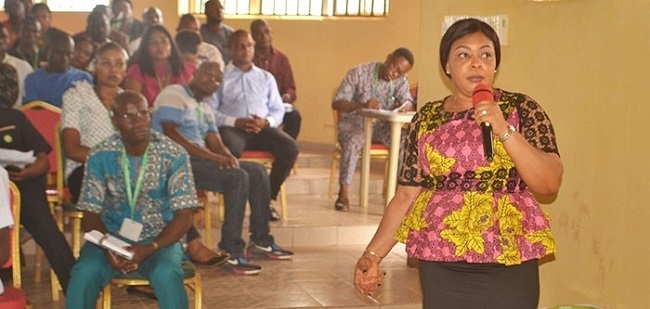
Dr. Yerima Peter Tarfa, Director, Department of Climate Change, and Focal Point For UNFCCC, Federal Ministry of Environment, represented by Mrs Ann Umar, dealt on the topic: “Nigeria’s NDC – Process of Formation and Key Features” and pointed out that climate change is threatening national development at all sectors.
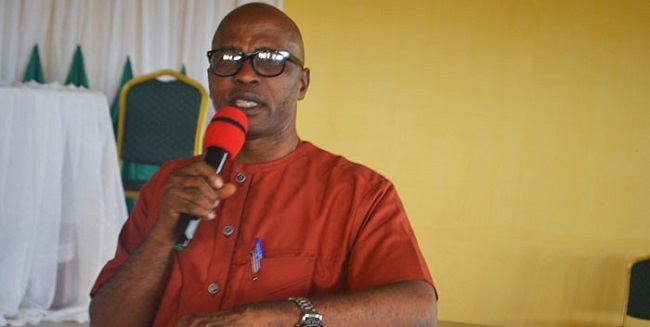
Prof. Emmanuel Nzegbule of the Michael Okpara University of Agriculture Umudike, Abia State, Nigeria, while making his presentation, provided answers and explanations to the question: Do strong political and fiscal commitment exists to achieve Nigeria’s NDC and Katowice Climate Package?
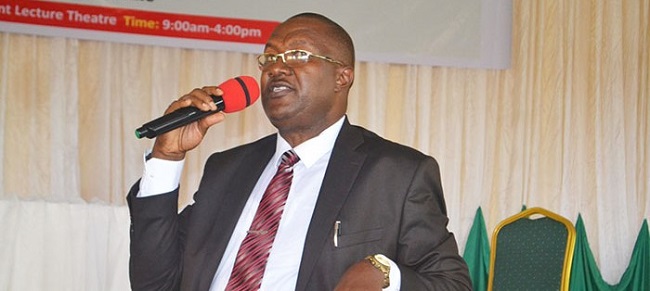
Paddy Ezeala, environmentalist and consultant to the Nigerian Conservation Foundation (NCF), spoke on “Deforestation in Nigeria: The Looming Disaster in South-East Nigeria”. In his presentation, he revealed that:
- Deforestation is the biggest threat to biodiversity in Nigeria
- All measures put in place for the protection and sustainable management of our forest resources have been failing
- Only 4% of Nigeria’s original untouched forest cover is left.
- Annual rate of deforestation in Nigeria is 3.5% approximately 350,000 hectares of forest out of 7.3 million hectares lost globally, according to FAO.
- Five million trees are felled daily due to illegal logging in Nigeria.
In his vote of thanks after the reactions, opinions and exchange with the participants on the subject, Dr. Onyeneke thanked the Vice-Chancellor for the opportunity and the facilitators and participants for giving out time to brainstorm on the topical and yet, technical subject. He stated that achieving success in addressing the phenomenal issue of climate change is a collective responsibility.
